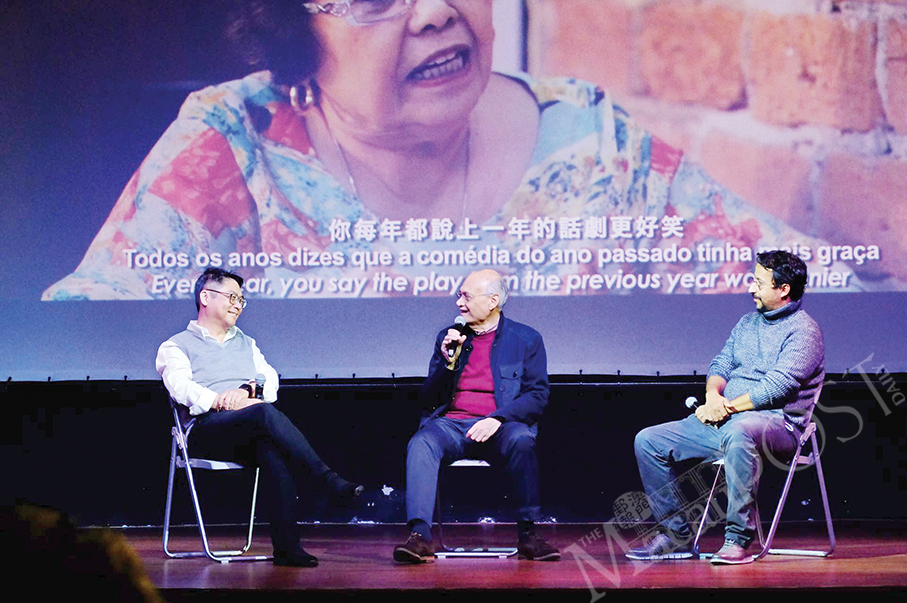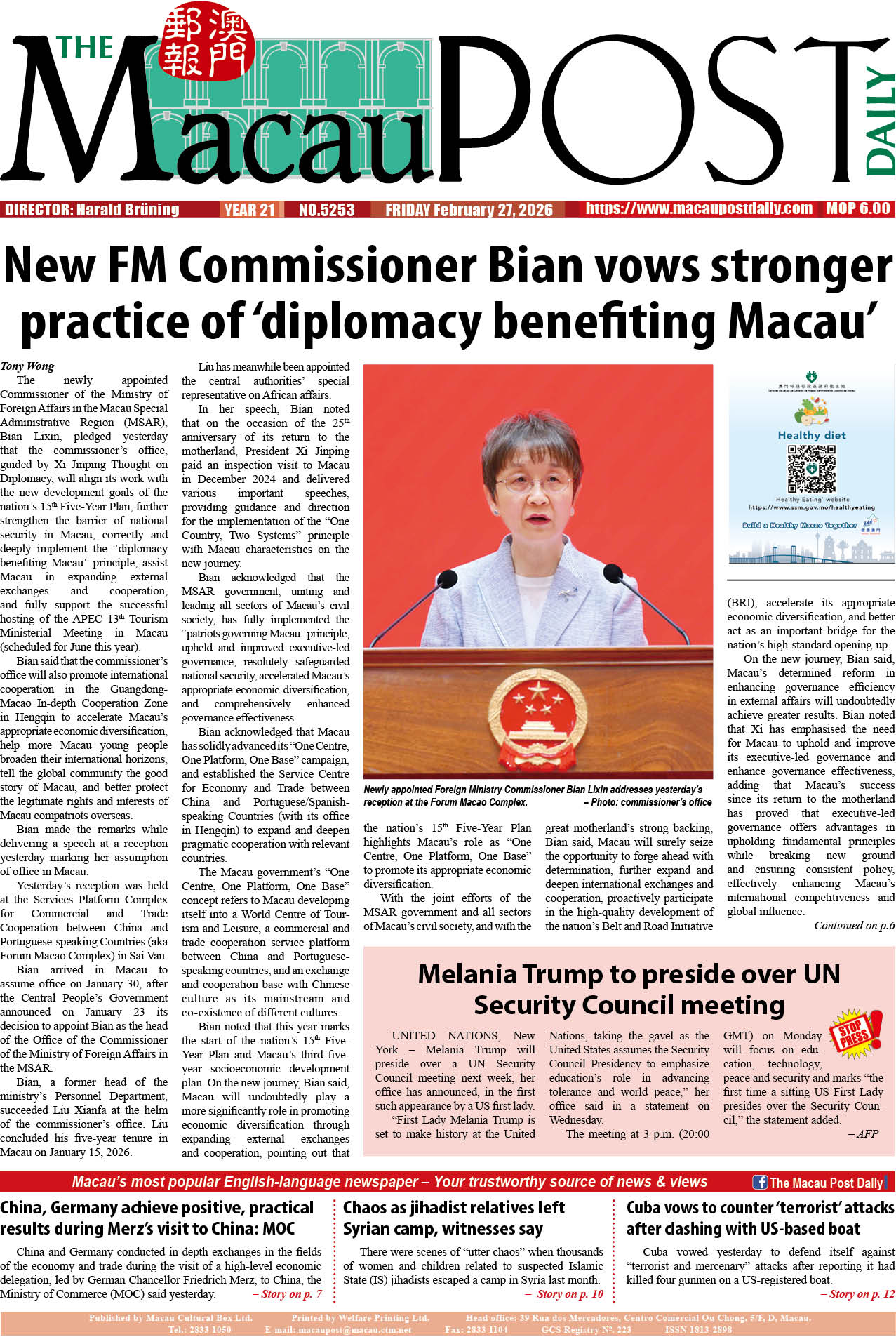Short-films in Patuá were showcased as part of the entries in the “Macau International Short Film Festival” at Teatro Capitol yesterday evening.
Patuá is a Portuguese-Asian Creole originally spoken by the Macanese community. Its vocabulary includes Portuguese, Cantonese, Malay, Indian, Japanese and English words. According to linguists, its grammar is more Asian than European.
The short-films were directed by filmmaker Sérgio Perez and written by lawyer, theatre troupe director and playwright Miguel de Senna Fernandes, both of whom are local Macanese. The short-films that were showcased were produced by and integrated into the annual plays in Patuá by the theatre troupe Dóci Papiaçám di Macau (“Sweet Language of Macau”).
Customarily, the term “Macanese” refers to Macau’s community of mixed Portuguese and Asian descent, as well as its sizeable diaspora.
Eight short-films were showcased at the cinema, including “This is Macau”, “The Quarantiner – The Choice”, and “Macau, a Blissful Blend”. The films have a duration of about 10 to 15 minutes each.
Current state of Patuá in Macau
In an interview with The Macau Post Daily after the screenings, Senna Fernandes was asked about the state of Patuá in Macau, which he said was still “seriously endangered”, but noted the acceptance of the current state that the language is in.
Senna Fernandes said, “We know the state of Patuá in Macau. Nobody really speaks it like we would like them to speak it”. However, he was quick to point out that Patuá is used “as a medium”, adding that it triggers laughter through the theatre shows and the short films, while bringing up “the collective memory, the traditions and the sense of belonging” through the language.
Senna Fernandes lamented that there are only a limited number of Patuá speakers left in Macau, but he underlined that this was not the issue. He said that “we want to tell the younger generation that their ancestors might have spoken this language at home”, adding that the significance is “to bring back some traditional or historical background for everyone to be able to sense” its importance. Senna Fernandes added that “this is tradition, this is the core of our community so we have to bring it up and bring it to the stage”, referring to the plays by his popular theatre troupe.
Fernandes also noted that there has been a growing interest in the language in spite of the limited number of speakers, saying that “you have to note that 10 years before, or even 15 years before, nobody would talk about Patuá”.
Fernandes said that nowadays, the language is widely enquired about, as well as experiencing an increased interest in studying the language academically, adding, “I think we [the theatre troupe] did something to trigger the interest on stage so we’ve been doing this for nearly 30 years”, viewing the efforts in a positive light.
When asked about efforts in preserving the highly endangered language, Fernandes said that there are still plans underway. He also said that with Patuá Theatre inscribed on the list of national intangible cultural heritage, the government’s feedback has been “favourable” towards “doing more” regarding its preservation. He added that he and his fellow Patuá enthusiasts will continue to look towards what can be done as well as how the language can be better promoted.
Readers interested in knowing about Patuá may read the following Wikipedia article about Macau’s “sweet language”: https://en.wikipedia.org/wiki/Macanese_Patois

Lawyer, theatre director and playwright Miguel de Senna Fernandes (left) and filmmaker Sérgio Perez (far right) speak in English about their Patuá films and filmmaking process during the “Direction and Script: from Concept to the Show” section at the “Macau International Short Film Festival” at Teatro Capitol yesterday evening. The 30-minute talk in the cinema was moderated by José Sales Marques, president of the Institute of European Studies of Macau (IEEM). Photo: Rui Pastorin






